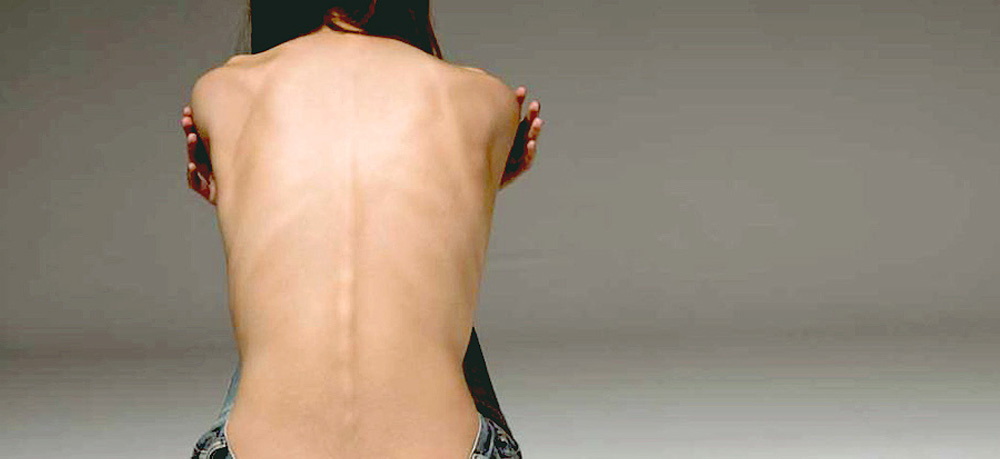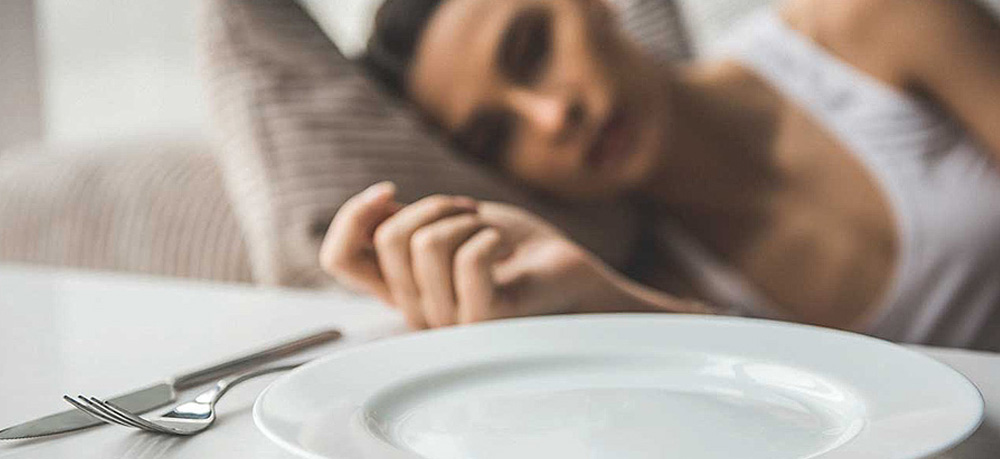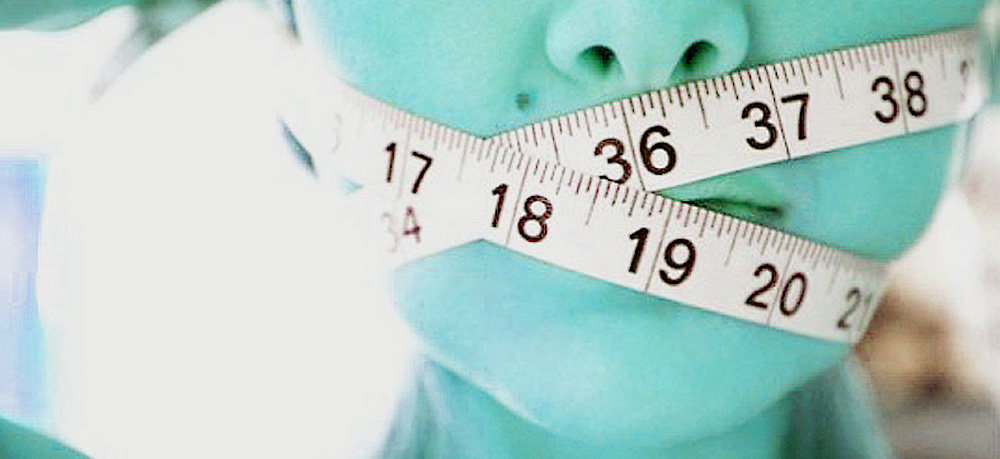Eating Disorders: The importance of a Mind-Body approach on the journey to recovery
So What Are Eating Disorders? Dr. Jenna Daku explains in this article how eating disorders can affect many of us in this modern world. Our minds and bodies are deeply connected. Tears well up in our eyes when we are sad, and tension builds in our muscles when we feel anxious or afraid. Perhaps the deepest connection of all, however, lies between our stomachs and our minds. For example, it’s been discovered that our stomachs have as many neuronal connections as a cat’s brain.
Similarly, serotonin, a neurotransmitter involved in positive mood and feelings of happiness, is primarily produced in our gut, which was unbeknownst to us until recently as well. This helps explain why we often use the phrase “gut feeling” to describe a deep sense of knowing that stems from the centre of our body. But despite our growing understanding and appreciation of the mind-body connection, I feel as though we are becoming ever more disconnected from our bodies.
As a psychotherapist specialising in eating disorders and recovery, this is of the utmost importance for me, my clients, and the work that we do together. But to fully understand its significance, I believe we need to take a look at our sociocultural landscape. Since the majority of my work has been with women, so for the sake of simplicity I will stick to exploring a female perspective.
How Common Are Eating Disorders? We live in a fast-paced world, where many of us are constantly on the move. With the rise of feminism and female equality, building successful careers has become more accessible and desirable for women. In my therapeutic work, I’ve noticed a frequent tension between the desire to succeed and the maternal pull to build a family.
This can create a painful split for some individuals, especially when they’re struggling with disordered eating, which is accompanied by rigid black-and-white thinking.
The problem is that both of these parts of ourselves as women come with deep meanings for our identities. For women struggling with an eating disorder and rigid thinking patterns, it can feel as though they need to choose one or the other. Yet the thought of making such a choice often brings guilt and shame, of which they already experience enough of with their eating disorders.
Because eating disorders can be a way of coping with difficult feelings and emotions, dilemmas like these can add more fuel for eating disordered behaviours.
Eating disorders arising from our peers, media and culture

What causes Eating Disorders? On top of these complex identity and gendered issues that modern women face, we are also bombarded with messages from our peers, the media, and our culture about our bodies, food, and health. We are sold ideas about what it means to be in a thin body, how weight is equated with beauty and success, and now, with health as well.
Dieting may not be as mainstream as it once was, but the guise of clean eating has replaced it with similar detriment as it still perpetuates the moralisation of food which can contribute to rigid rules and fear around food.
This can become hugely problematic for some, even resulting in eating disorders such as Orthorexia, which is a rigid obsession with eating non-processed and organic foods that significantly interferes with daily life, relationships, weight, and psychological wellbeing.
The most recent trend that I’ve noticed is the emphasis on “healthy eating”, which seems pretty harmless. But if we really break it down and look at how it’s being applied, it is no different than a diet in that it moralises food, labelling some as “healthier” or “better” than others.
What Is The Paradox Of Eating Disorders? I fear that intuitive eating, the only true alternative to disordered eating and dieting, could also soon be hijacked by our culture’s diet-mentality. But that’s a topic for another day.
In among all this chat about “health”, lies our preoccupation with obesity. I am personally very sceptical of the so-called “obesity epidemic”, not least due to the fact that obesity is diagnosed according to Body Mass Index, which has been discredited by numerous studies and sources.
I believe the fact that we refer to it as an “epidemic” is just so telling of our inherent fat-phobia, which in itself contributes to major health problems for individuals in larger bodies. Stigmatisation is a social determinant of health and when it occurs both externally and internally it can result in depression and anxiety, high blood pressure, and even limitations to healthcare access.
That might sound shocking, but I’ve had clients disclose that their GP’s have told them to lose weight before they can have access to pretty basic healthcare, like foot surgery. This kind of weight stigma also applies to individuals who are in “normal” sized bodies and are worried about their relationships with food.
Somebody once told me how a healthcare professional said that her bingeing was “fine” because she wasn’t overweight and “at least” she wasn’t purging. The bottom line is that we live in a culture that perpetuates weight stigma, healthism, and fat-phobia which are all damaging for our collective mental and physical health.
We seem to have lost touch with how our bodies feel

How To Treat Eating Disorders. We need to appreciate how all of these sociocultural influences can have an impact on our minds and how we perceive and treat our bodies. I believe that our collective diet-mentality and fat-phobia disrupt and disconnect us from our bodies. We have been taught how to think, rationalise and ruminate about what our bodies might need for nourishment.
We are bombarded with messages about how we can and ‘should’ control our bodies, our health, and our appearances. We look to the “experts” and other people to tell us what our bodies need. As a result, I feel that we have lost touch with how our bodies feel and the signals that they send to us as guidance – and I believe this is critical for understanding eating disorders and recovery.
What Are The Symptoms Of Eating Disorders? The women that I work with who suffer from eating disorders are often so caught up in their heads and thoughts about food and their bodies that they struggle to live.
They’ve internalised the messages about food, health, and bodies that surround all of us and they punish themselves and their bodies for not feeling in control when the eating disorder takes over. Relationships become difficult because their thoughts are so pervasive and intrusive that they cause almost unbearable social anxiety.
Work or studies feel impossible because they have a voice in their head that perpetually tells them that they’re not good enough, so they might retreat for fear of rejection. And all the while as they sit opposite me disclosing their experiences, they remain unaware that their bodies are telling a deeper story.
They cross their arms, holding elbows tightly, showing me how afraid they are of opening up. Their jaws are tense, and their breathing is often shallow, signalling their perpetual state of anxiety. And when tears manage to well up in their eyes, they often get cut off with unkind words or covered up with their hands.
I once did a body scan meditation with somebody and asked her to focus solely on her feet. When we did a check out after the 5-minute meditation, she voiced that she hadn’t even realised that she curls her toes downwards all the time, pressing them firmly into the ground so hard that they tingle.
All of this tells a deeper story of emotional and physical stress that’s been carried and pushed down for months, often years, as a result of the eating disorder, its underlying causes, and the detrimental impact it has on her life as a whole.
The journey back to recovery from eating disorders

How To Overcome Eating Disorders. Women that are so deeply disconnected from their bodies, and stuck in their heads, feel that recovery from their related eating disorders is impossible for them. They are afraid of losing the thing that makes them feel safe, numbs their feelings, and keeps relationships and rejection at a distance.
And yet they keep coming back to therapy, despite what their heads are telling them. I think they do so because the connection with their bodies, however, disrupted, isn’t entirely severed. They still have an innate intuition, a hope, that life can be different.
Although it might be driving them unconsciously, it exists below the surface and thus can consciously re-emerge. With support, compassion, patience, awareness, and some new coping skills, reconnecting with their bodies is possible. I use meditation and mindfulness as a tool in our sessions to observe the signals that their bodies are telling us.
It also helps to re-wire their stressed-out bodies and minds by grounding them and getting them to connect more with their breath and the present moment. I also work closely with anti-diet and Health At Every Size dieticians, who are sensitive to the socio-cultural issues that impact the food behaviours and thoughts of individuals with eating disorders.
But most importantly, I listen to what their minds and their bodies are trying to tell us because both are filled with infinite wisdom, despite being shrouded in self-doubt and criticism.
———————————
Eating Disorder Therapist Dr. Jenna Daku can be contacted via email on [email protected].
Make sure you check out her website – Freedomtobetherapy.com – if you get a chance.
For more information on eating disorders and the treatment available click HERE.


